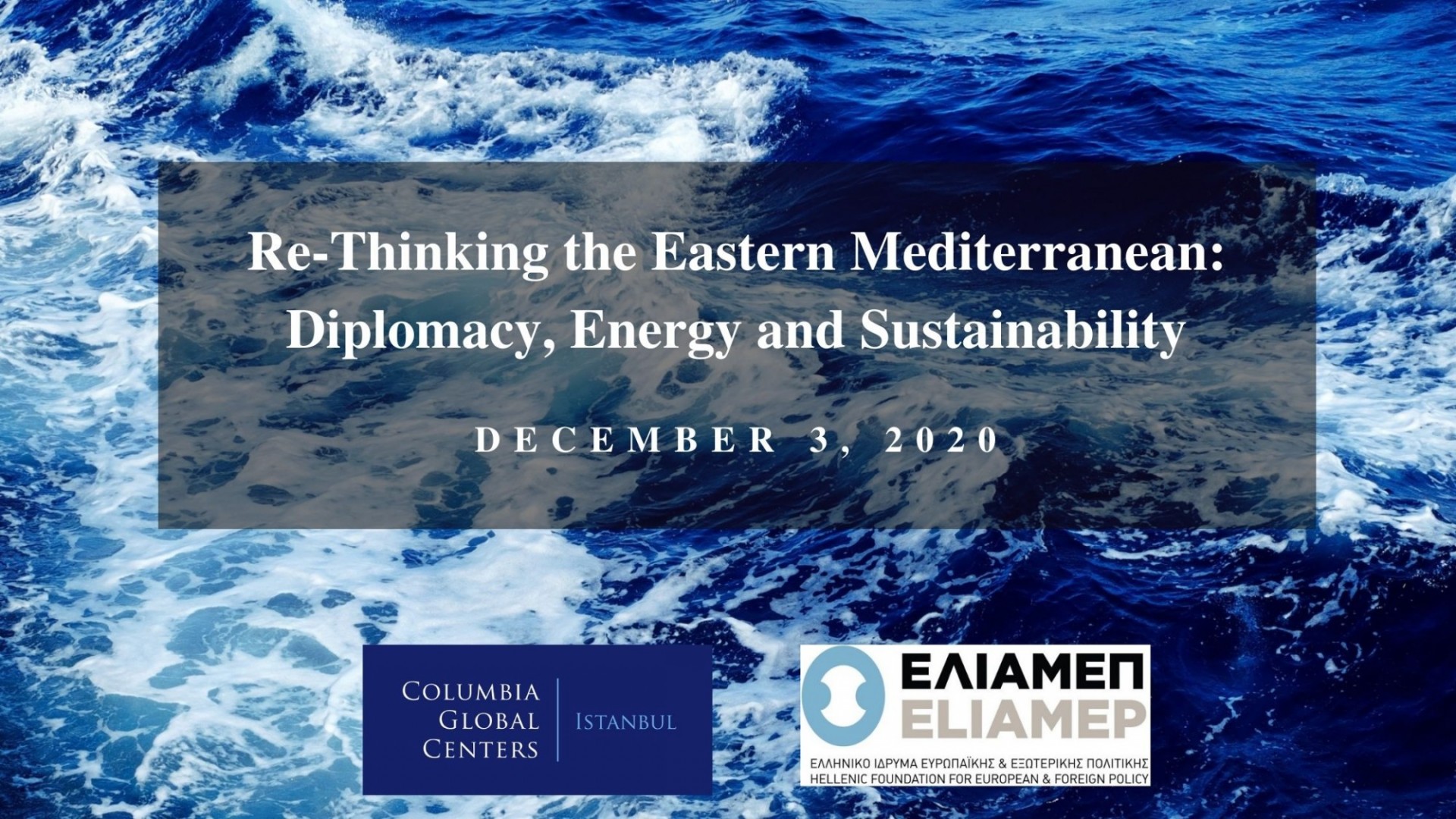Re-Thinking the Eastern Mediterranean: Diplomacy, Energy and Sustainability
The panel ‘Re-Thinking the Eastern Mediterranean’ featured the speakers Sinan Ülgen from the Center for Economics & Foreign Policy Studies, Dr. Charles Ellinas from the Atlantic Council’s Global Energy Center, and Değer Saygın from SHURA Energy Transition Center. The panelists discussed issues in the Eastern Mediterranean ranging from diplomacy to energy and sustainability.
A big part of the webinar concentrated on diplomacy processes between Turkey and Greece on the dispute of Cyprus. Recently, the Cyprus question has become intertwined with that of energy. Since new hydrocarbon resources have been found in the Eastern Mediterranean, hopes rise that finding a solution in Cyprus would be accelerated by the process of the countries involved cooperating on the subject of these offshore resources. However, in practice, the energy findings instead came to act as yet another amplifier for the region’s pre-existing disputes.
Turkey and Greece’s divisions have been exacerbated by these findings, and a solution seems difficult to envision. Ülgen explains that no answer has been found to the question of how you divide an area of sovereignty offshore; previously, this was a theoretical discussion as economic exclusive zones only have a practical application if commercially leverageable resources are present there. As long as the sovereignty issue of Cyprus stands, cooperation on dealing with energy resources seems unlikely. Ülgen argues their best hope is a compromise of sorts- they continue to disagree on the issue of sovereignty but nonetheless collaborate on the issue of energy.
Following the discussion of Cyprus, Dr. Ellinas and Değer Saygın discussed the future of sustainability and energy in the Eastern Mediterranean. They asked the question of whether gas is still relevant in today’s world, due to the growing importance of renewable energies. Deger’s analysis of Turkey’s energy agenda pointed in the same direction as Dr. Ellinas’ conclusion: the countries of the Eastern Mediterranean have remained in the past by maintaining their narrow focus on gas. The future, Ellinas explains, is renewable, and Deger supported this conclusion with evidence of Turkey’s current energy sector. Where demand for gas used to focus narrowly on power use, it has now shifted to heating and industry instead. Correspondingly, wind and solar power are gaining ground, encouraged by the EU and their European Green Deal, which committed to net zero emissions by 2050, and also by their status as the most cost-efficient energy producer. Economically, it makes sense to move away from gas, a conclusion supported by the fact that it would still take 7 to 10 years until any gas found in the Eastern Mediterranean would be commercially exploitable, as well as by the difficulties of the process of extracting gas from their depths. According to the panelists, there is less and less need for more hydrocarbon resources in a world moving further and further away from gas, and thus any diplomatic issues on the back of the resources should not be as important as the underlying sources of conflict. The talk is illuminating for anyone wishing to hear from experts about the Eastern Mediterranean’s future; whether it be about Cyprus, Turkey’s energy agenda, or sustainable energy.
